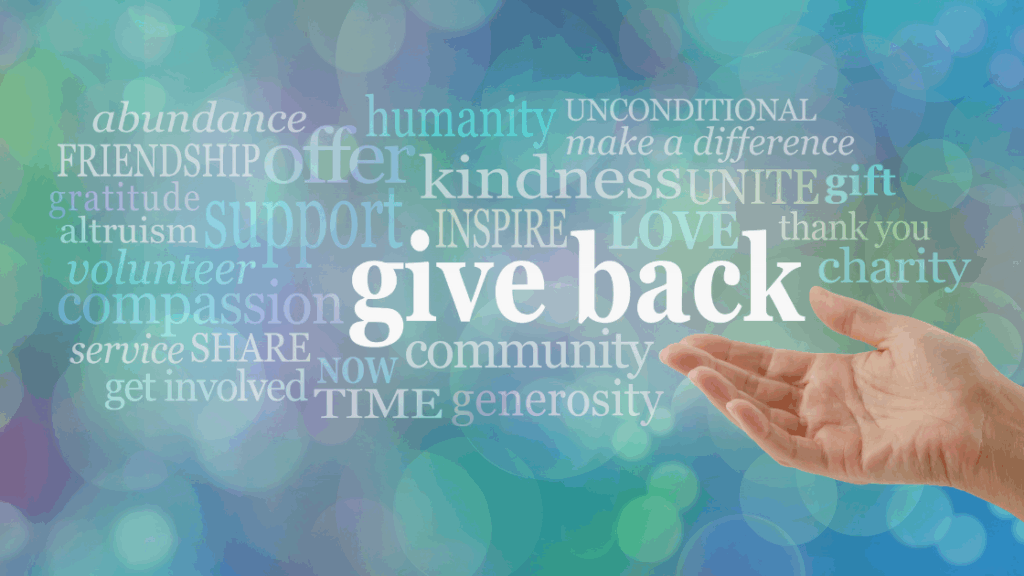Philanthropy has always been part of human society, but the way people give has changed significantly over time. Traditionally, giving was often seen as charity—donating money or resources to those in need. Today, modern philanthropy is far more dynamic. It is no longer limited to writing a check but has expanded to include strategic investments, community partnerships, mentorship, and active participation in solving systemic issues. The modern philanthropist seeks not just to address immediate needs but to create sustainable solutions that transform communities for generations.

Beyond Charity: Focusing on Impact
While charitable donations are valuable, modern philanthropists prioritize impact. They ask: How will this contribution change lives? Instead of providing short-term relief, the focus is on long-term outcomes. For example, funding a food drive helps feed families today, but investing in community kitchens or job-training programs empowers people to support themselves in the future. This shift from temporary aid to sustainable solutions ensures that giving leaves behind a legacy of empowerment, not dependency.
Philanthropy as a Community Builder
At its core, philanthropy is about people coming together. When individuals or organizations invest in their communities, they foster unity and trust. A philanthropist’s contribution—whether time, resources, or expertise—becomes a catalyst for collaboration. Communities that benefit from philanthropic projects often experience renewed hope and motivation. More importantly, they gain a sense of shared responsibility, where everyone feels part of the solution. This ripple effect extends beyond the immediate beneficiaries, creating stronger and more resilient neighborhoods.
Empowering Through Education and Skills
One of the most powerful ways philanthropy creates lasting change is by supporting education and skill development. Scholarships, mentorship programs, and vocational training open doors for individuals who might otherwise be left behind. By equipping people with knowledge and skills, philanthropists break cycles of poverty and empower individuals to contribute positively to society. Education-driven philanthropy creates a multiplier effect: one person’s growth often lifts entire families and even future generations.
Health and Well-Being as a Foundation
Healthy communities are thriving communities, and philanthropy in healthcare is crucial to sustainable development. Modern philanthropists are increasingly supporting initiatives such as mobile clinics, mental health awareness programs, clean water projects, and affordable healthcare access. These efforts address both immediate medical needs and long-term well-being. By prioritizing health, philanthropists ensure that people are not only surviving but also living full and productive lives, ready to contribute back to their communities.
Technology and Innovation in Giving
Today’s philanthropists have more tools than ever before. Technology enables innovative ways of giving, such as crowdfunding platforms, digital mentorship programs, and data-driven social initiatives. With transparency and real-time reporting, donors can see the tangible results of their contributions. Technology also allows philanthropy to scale quickly—reaching more people in more places. Modern philanthropists use these advancements to maximize their impact and to connect with causes on a global level while still creating meaningful local change.
The Importance of Leading by Example
Philanthropy is not limited to billionaires or large corporations. Everyday individuals can play a vital role in shaping communities through small but meaningful actions. By volunteering, mentoring, or supporting local initiatives, anyone can embody the spirit of giving. When people witness acts of generosity and commitment, they are inspired to do the same. Leaders—whether community organizers, business owners, or public figures—set the tone by demonstrating that giving is not an obligation but a responsibility and privilege that enriches everyone.
Building a Legacy of Lasting Change
Ultimately, modern philanthropy is about legacy. It is not measured solely by the amount given but by the change created. Philanthropists today recognize that sustainable development requires addressing root causes, fostering inclusivity, and building capacity within communities. By focusing on long-term transformation rather than short-term relief, they leave behind more than donations—they leave behind empowered individuals, stronger communities, and a culture of compassion.
Conclusion: The Call to Give Back
Philanthropy in the modern world is a powerful force for progress. It bridges gaps, uplifts the underserved, and creates opportunities where there were none. Every act of giving, no matter how small, contributes to building stronger, healthier, and more resilient communities. As society continues to face complex challenges, the role of the modern philanthropist is more important than ever. By giving with intention and vision, we can all contribute to creating lasting change—one community at a time.